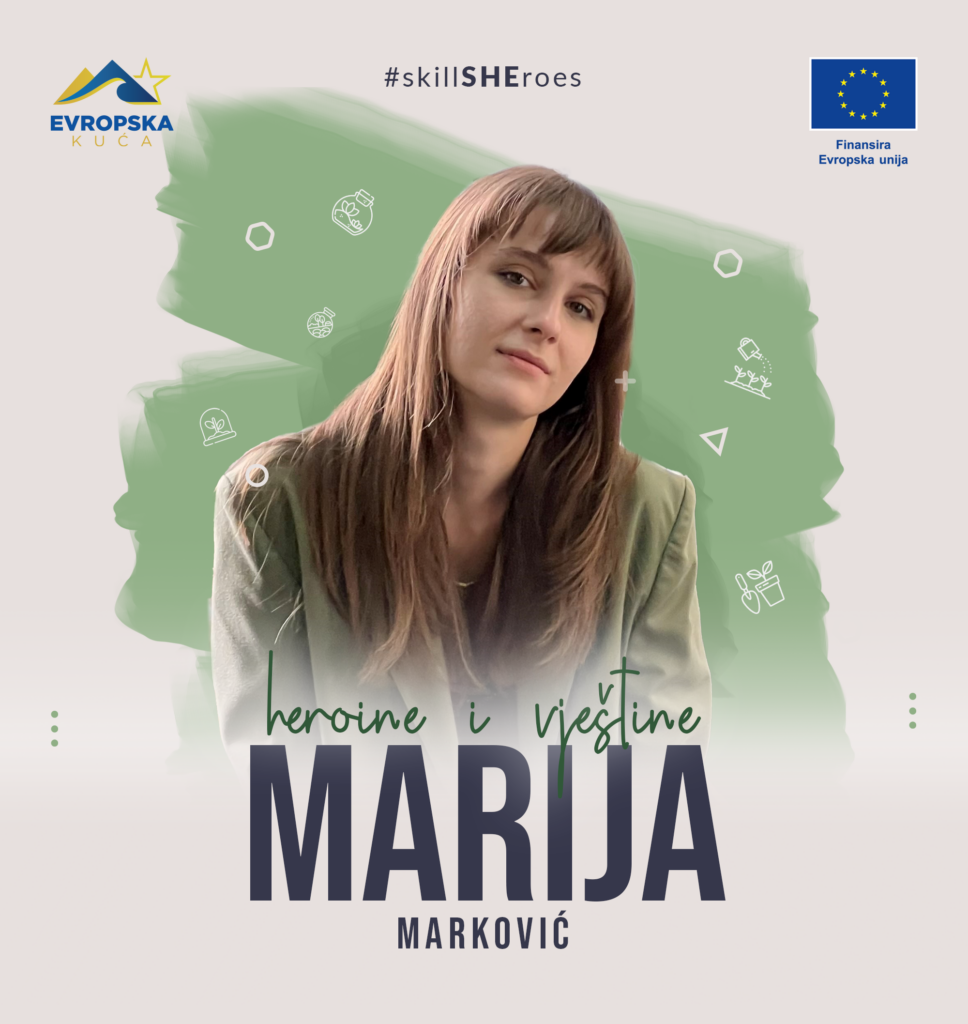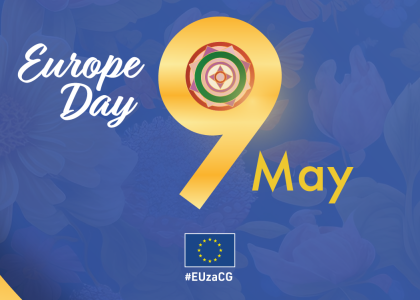A Conversation with Marija Marković (Marun)
“I’ve always been mesmerised by glass objects, everything untouchable and hidden, and terrariums are like landscapes under a glass bell.”
The extraordinary fate of Amelie Poulain (Le Fabuleux Destin d’Amélie Poulain), who loves a simple life, enjoys the little things, and tries to make the people around her happy, can be compared to the life of Marija Marković, known as Marun.

Or at least Marija can be compared to Amélie in her charm and desire to make the plants around her happy.
Marija is unique and creative. She has nurtured her love for plants since childhood.
“As a child, I watched the roof of the old building next to ours from my grandmother’s window; the tiles were like a sea of red, and the moss was spread all around like islands,” recalls Marija.
She added, “Now, all my childhood obsessions make sense, even the manic collecting of stones, because each one finds its place in my gardens.”
Marija Marković is a graphic designer who turned her love for plants into a true profession. She now makes terrariums.
“I’m good with my hands and can create almost anything I imagine,” she said in an interview with Europe House.
Sometimes she would like to have the power to shrink, and to enter the terrariums when she needs peace.
For a long time, she had a strong desire to become an archaeologist, but soon realised that only art was sufficiently suitable for her “sensibility.”

“While studying graphic design, I rediscovered my childhood passions for illustration and stop-motion animation. I fulfilled those wishes for myself and made a few short, animated films,” Marija recalls.
She was always growing plants, or so it seems; as she says, it was hard to resist this with a grandmother and mother who dote on violets.
“I didn’t see them as a means of expression until I saw an unusual terrarium resembling a glass garden in a movie; that’s when I began to explore that idea, I wanted it for myself! It took me a long time to get to know the delicate ecosystems, and still, every day I notice or learn something new,” she explains.
Marija emphasises that she never settled down anywhere because everything felt like a trial.
“That approach brought only good to me; I gave myself the freedom and time to choose and play, and many beautiful works that I’m proud of were born from that,” she adds.
She is surrounded by wonderful, warm people, and that motivates her.
Out of all challenges that this unusual hobby or job brings in Montenegro, she highlights that sourcing materials is the biggest problem.
“My first plants, jars, even tools, were souvenirs from travels,” Marija adds.
Her advice for girls and women is to plan their steps but remember to have fun along the way because it’s more enjoyable that way.




